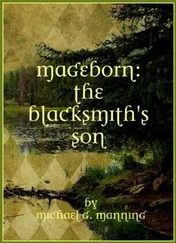“Is that his name?” says Sonia. Speaking to the girl seems to calm her. I’ve been hallucinating, she thinks, and shudders, but the details of the near-dream are starting to fade. She wills them out of her mind. “No, I cast no curse,” she says. “I’m not a witch. I asked him for his name so I could intercede for him on the Day of Judgment, since he is going to kill me unjustly in the name of God, which is a great sin.”
She sees the girl’s face twist in puzzlement. “Why would you do that?”
“Because I was taught to be merciful to my enemies and forgive them, as God forgives us.”
“Only a fool would forgive an enemy. That would just give him another chance to attack you.”
“And so? What if he attacks?”
“He might kill you.”
“And so? We are called to be mujahideen, we are called to struggle for the sake of God. In the lesser jihad we struggle against the enemies of Islam and for justice, and if we fall we are taken to Paradise. In the greater jihad we struggle against ourselves. We strive to become like God, and what is God if not compassionate and merciful? If we fall in that struggle, the Prophet, peace be upon him, has told us that we gain a higher rank in Paradise than those who fell by the sword.”
The girl looks down at her hands. She says, “I should not listen to you. You are a blasphemer. But look, I have had a dream.”
“Tell it,” says Sonia.
“I was on the bank of a river, a swift-flowing stream,” says the girl. “On the other side was… a boy. He was holding a gold ring and beckoning to me, but I couldn’t cross. Then I saw there were corpses in the water: oxen, horses, and some men, too. I was afraid, and I awakened.”
Sonia says, “The river is the future, which flows ever toward us and cannot be stopped. The gold is the prospect of a successful marriage. The corpses mean that the marriage cannot take place until someone, perhaps many, have died. And the boy is whom you love. What is his name?”
“Batur,” says the girl immediately, and then gasps and holds her hand up to her mouth.
Sonia says, “Yes, Batur. He is from a good family in another village. He loves you and would marry you, but your father has promised you to someone else, an older man.” It is only a guess, but Sonia knows such sorrows are the common lot of Pashtun village girls.
Rashida’s eyes grow wide, glistening, reflecting the small yellow flame of the lamp. “How did you know that?”
“I know many things,” says Sonia. “And this older man is…”
“Khaliq Sumro. He has one eye and he stinks like a goat. He is of the mujahideen and advises Idris Ghulam. He has one wife in Peshawar but he wants one here.”
“Never fear that you will marry him. His death is foretold and will come soon. Your father may have a dream. Tell your mother what I have told you, and she will use the ways of women to make him come and see me and I will interpret that dream as well.”
The girl nods and assures Sonia she will do this and pushes forward a closed basket. She says there is food in it, and she will leave the oil lamp there, to stave off the rats. Then she darts up the ladder and closes the trapdoor. Sonia hears the bolt shoot home.
What a precious thing a little light is! Sonia thinks, and a little kindness as well. She cradles the small lamp in her hands. By its glow she can make out the shapes of the rats moving and from time to time the glow of their tiny fierce eyes. She wonders if the oil will last until dawn. Probably not. Perhaps that is part of the torment. Hope and some slight relief from the worst are the best weapons of any tormentor; the torturer smiles and offers a cigarette.
This adds incalculably to the most dreadful element in her situation, the anticipation of pain to come; anyone with an interior life knows that psychic pain is what breaks you. Sonia knows she is breaking. She is brave enough when free, with room to maneuver. She has confidence in her own cleverness, but now it is entirely gone. Her plan was a stupid one, and now here she is. She has always been a little claustrophobic, she has always sought the open skies, avoided tight spaces both physical and social; her life has been based on this preference, and now she is in this tiny grave packed with rats.
She sobs, letting the misery flow without constraint. She cannot bear the prospect of more pain. Easy to talk of torture, to discuss it as a phenomenon in a living room where the torturer is far away; one thinks on those occasions, perhaps, Well, I could stand it, I’m no baby, and then one sees people who have been tortured and they look the same as us; they laugh, they joke. How bad could it be? Secret, shameful thoughts, but there they are. Sonia has known any number of the tortured-they are common enough in Pakistan-and she has had these thoughts.
But now she knows they will take her out in front of the mosque tomorrow and lay her on the ground and tie her feet up to a chair and whip the skin from their soles. And a few hours later again, cutting the intricate weave of muscles and tendons into red jam and bringing her back to lie in this filth. Infection will set in immediately, she will die of septic shock, delirious and alone. She knows, too, that even this is not the worst. She knows that what utterly shatters the soul is this: when the pain is applied, sooner or later the victim feels in her deepest core that she would yield her place to anyone; she would say in her heart, Torture my babies, torture my son, torture my husband, all my loved ones, but not me! Thus the victory of the torturer is the absolute victory of the self: Hell incarnate.
Yes, the self, the nafs, what the Sufis spend their lives trying to control. Sonia thinks this, the word nafs is present in her mind, and all at once, astonishingly, her weeping turns into a bubbling laugh. So this is what you meant, my murshid!

Now, in darkness, hungry for the brassy colossal skies of Asia, she thinks of her journey with Ismail, which she put into her first book and which made her enjoyably famous for a season, although Ismail had told her that fame was like wax dripping on the nafs from a great candle, thicken -ing it and making the soul more than ever its prisoner. She thinks about warming his bedroll, which she did not put into that book. And most of all she thinks of his lessons, the Sufi training he gave her, for despite his lighthearted manner he was a hard master in the ways that the murshids of his order had, over six centuries, devised to strip the self from the body and allow God to burn it away to nothing.
From a pocket of her ruined kameez she takes a Sufi rosary of thirty-three beads, a tasbi-e-Fatima, the kind given by the angel to Hazrat Bibi Fatima, daughter of the Prophet and mother of all Sufis. Sonia rolls the wooden beads through her hands as she begins the recitation, the zikr, at the heart of Sufi practice. The zikr she recites is the Name of God. As she does so she visualizes the calligraphic representation of the Name, in Arabic, in the approved golden-wheat color. Before, when she was with Ismail, she never quite achieved the reported glow, her visuali -zation flickered like the neon of a cheap motel sign. Somewhere after three hundred of the usual thousand repetitions, her concentration would flag and the self would issue forth like a fungus. She confessed this to her murshid. He told her not to worry. He told her to wait for God. He said God would find her when the conditions were right.
Now, obviously, the conditions are right, for the Name of God shines like the noon sun on a field of grain and she is also able to visualize her murshid. There he floats in the black cell, grinning, vastly amused, his face lit by the golden glow. The beads fly through her fingers; the Name echoes in her head like a gong. Apparently the right conditions for one such as her is the prospect of being tortured to death. Ismail thinks this is amusing and so does she, and all at once she understands that God is laughing too. Nothing is as she thought; everything familiar is now wonderful, and the esoteric is plain as bread. She understands that she is departing the alam-e-nasuf, the material world, and entering the alam-e-malakut, the realm of angels, the ground reality of the universe. In her ears, faint at first but growing louder, is a sound, indescribable, which is the sout-e-sarmadi, the eternal sound that permeates all the worlds, of which the most beautiful music is but a shadow.
Читать дальше













